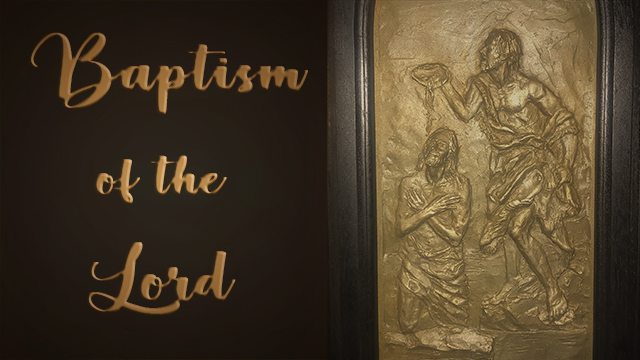Dear Friends,
After my letter explaining the octave of Christmas, several people asked about the origin of the idea that there are 12 days to Christmas. In the traditional Christmas calendar, January 6th is Epiphany or Theophany. The 6th of January would be the 12th day for those of you wondering about the 12 days of Christmas. In fact, for the first centuries of Christian faith and in some places to this day, the Epiphany is treated as the more important “Christmas” event. In the United States today and throughout Europe, Epiphany is moved from January 6th to a nearby Sunday. Many dioceses have done this with almost all of the holy days. We celebrated Epiphany last Sunday, January 2nd.
Epiphany has been the commemoration of two things in the church calendar: the western church remembers the visit of the Magi, while the eastern Church remembers the baptism of Christ. In both cases, we see Jesus revealed as Messiah and son of God. The Magi reveal Jesus as something more than just any ordinary infant. He is the newborn king.
In Jesus’ baptism, what we celebrate this Sunday, something extraordinary occurs. The text of the Old Testament had spoken of the Spirit of God and had prophesied a coming Messiah, but the trinity was never explicitly revealed. At the baptism of Christ, we read of this extraordinary encounter: while Christ is being baptized, the heavens open and the Spirit descends in bodily form like a dove. Meanwhile, a voice speaks from heaven saying: “This is my beloved Son in whom I am well pleased.” Epiphany could be translated “enlightenment” or “revelation”. Here in Christ’s baptism, the ultimate enlightenment takes place. What could never have been discovered has been revealed. God has come in the flesh. God the Creator has a Beloved child. He who had been simply working in a carpenter’s shop in Nazareth was revealed to people and eventually to all as the hope of salvation, the gift to humankind.
For those of you Shakespeare fans, I ran across an unusual tidbit while doing background research for the homily this weekend. Professor Andrew Kern says this: “People have speculated about why Shakespeare called his play Twelfth Night. Shakespeare never seemed to do anything unless he had at least three reasons and six interpretations, but there is no doubt in my mind that he is at least nodding to tradition in his title. It is a play of veiled identities, egos blinded, madness and imprisonment. But in the end, the very simple ‘separated twins’ plot device brings clarity when they all discover the truth about each other and themselves upon the arrival of one who was thought drowned. It is a great epiphany, and celebrates, through imitation, the great Epiphany that is the twelfth day of Christmas.”
One more thing happens on this day when we remember Christ’s baptism. The Christmas Season ends. So, you can now officially take down your Christmas decorations and stop singing Christmas carols. However, there is one other tradition out there that says you have until the Presentation of the Lord on February 2nd to get your decorations down. No rush for them.
Peace,
Fr. Damian



